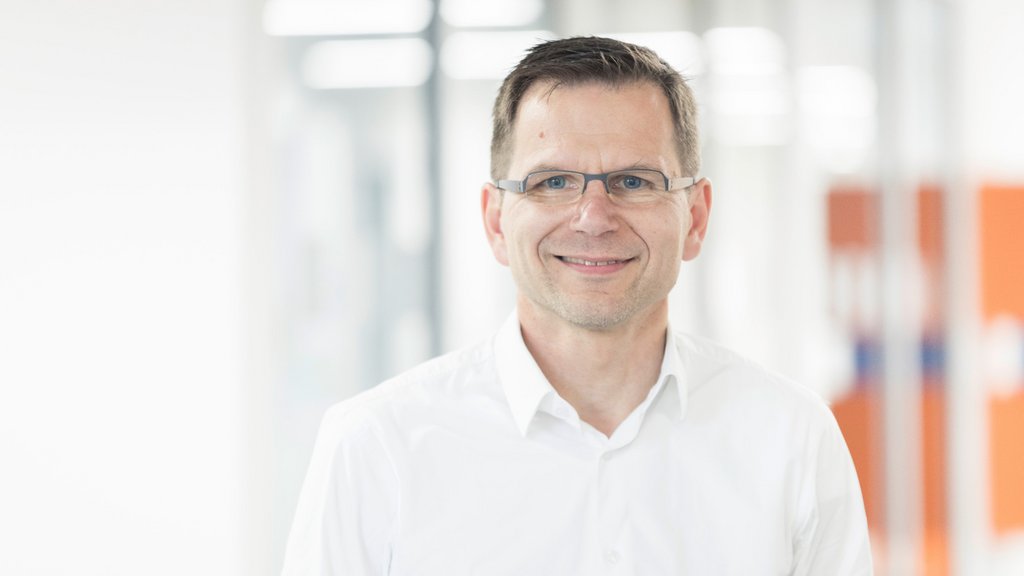Background - 25.01.2022 - 00:00
Rolf Wüstenhagen on solar and wind energy versus new nuclear power plants
The European Commission’s proposal to categorise nuclear power stations as "green" investments under certain circumstances has triggered controversial reactions among member states. An interview with Rolf Wüstenhagen, Professor of Management of Renewable Energies at the University of St. Gallen.

25 January 2022. Here in Switzerland, the delegates of the FDP will vote on 12 February on whether the ban on construction of new nuclear power plants passed by the people back in 2017 should be dropped. So are we seeing a "renaissance" of nuclear power? In an interview Rolf Wüstenhagen, Professor for Management of Renewable Energies at the University of St. Gallen, takes a critical view.
What do you think about the EU wanting to categorise nuclear power plants as "green"?
Rolf Wüstenhagen: First and foremost, it’s an impressive lobbying success for President Macron and the French nuclear industry. However, I rather doubt whether it will make a big difference on the financial market. Private investors are not suddenly going to take a different view of the risks of nuclear power just because the European Commission has stuck a green label on the technology. The main concern, however, is that it will undermine the effectiveness of EU taxonomy as a credible instrument for funding climate protection.
Nuclear power plants produce less CO2, but generate nuclear waste. Given the urgency, shouldn't the CO2 issue be prioritised?
RW: It is precisely because the CO2 issue is an urgent problem that we need to invest in technologies that can also contribute to the solution quickly. Nuclear energy is not one of these. In Finland, the first reactor in a long time is likely to go into operation this year – after 17 years’ construction time and costs more than three times higher than originally budgeted. Even in France, no new reactors have been built for two decades.
Renewable energies also produce hazardous waste, but the public debate focuses on nuclear waste. Is that justified?
RW: There is a fundamental difference between renewable energies like solar and wind power and non-renewable energies like gas and nuclear power: It’s true that in both cases raw materials are required for construction of the power plant, but once in operation, solar and wind power plants function without further input of fuel, while conventional nuclear plants continually consume non-renewable resources, the remnants of which then pollute the environment. On top of this, after half a century of nuclear power plant operation, we still don’t have a final repository. The fact that the European Commission states in its taxonomy that this problem must be solved by the year 2050 as a requirement for “green” nuclear power is questionable.
According to a PSI study frequently cited by supporters of nuclear power, this kind of power costs around the same as renewable energies. Are we wrong to consider nuclear power expensive?
RW: On this point, the study is not comparing like for like. Since no new nuclear power plants have been built in Europe for some time, the PSI refers in a footnote to the cost of new reactors in China and South Korea. For solar and wind power, meanwhile, estimates are given for projects in Switzerland. In a fair comparison, solar and wind power is already significantly cheaper than new nuclear power plant. When we assess the economics of nuclear power, it’s important to consider two further methodological aspects. The first concerns the costs for dismantling and disposing of nuclear power plants. The radioactive waste must be stored safely over thousands of years. In a world with high interest rates, these long-term costs can be discounted so that they virtually disappear from the accounts. In a low-interest world, however, the math looks very different. The second point is the accident risk: In Japan, the cost of the nuclear accident at Fukushima is now estimated to be between 270 and 630 billion francs. Yet Swiss nuclear power plants are only insured for up to 1.8 billion francs – the difference is a subsidy from the taxpayer.
Politicians are flirting with the idea of operating Switzerland’s existing nuclear power plants for longer than 60 years. Is that reasonable?
RW: Simply allowing power plants that have already been written off to continue running would be financially attractive for the shareholders of power plant operators in the short term – if all goes well. But as with any technical installation, the risk of something going wrong increases with the length of its service life. Switzerland is already operating the oldest commercially run nuclear power plant in the world – but instead of further aging our fleet of power plants, we would be better off investing courageously in the future.
Switzerland will still face power shortages in winter, even if we expand renewable energies. Wouldn’t nuclear power plants make more sense?
RW: Your question assumes that we will continue to expand renewables as slowly as we have done thus far. But if we manage to speed up expansion – as the majority of the Swiss population wants – and if we are careful to ensure broad diversification between solar and wind power in different parts of the country, then this, in combination with hydropower, could meet our energy needs reliably in future. It is also important to keep an eye on energy efficiency: Good insulation and replacing electric heating with heat pumps can help to reduce consumption peaks in winter.
This interview was conducted by Michael Bolzli of awp Finanznachrichten.
More articles from the same category
Discover our special topics



![[Translate to English:] Choix Goncourt de la Suisse | unisg.ch](https://www.unisg.ch/fileadmin/_processed_/b/a/csm_Choix_Concourt_de_la_Suisse_HT-Stibi-069_2110740678.jpg)







